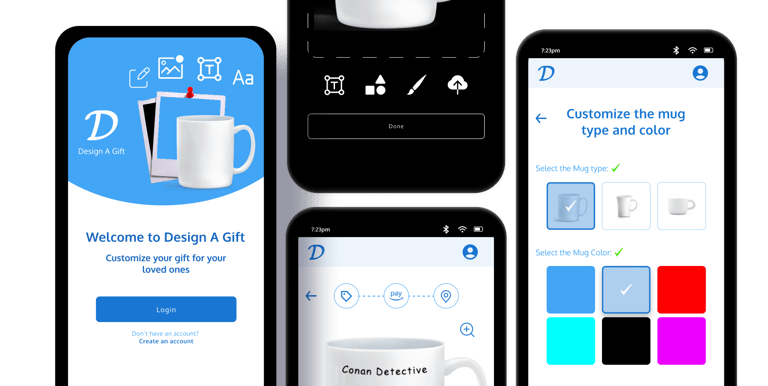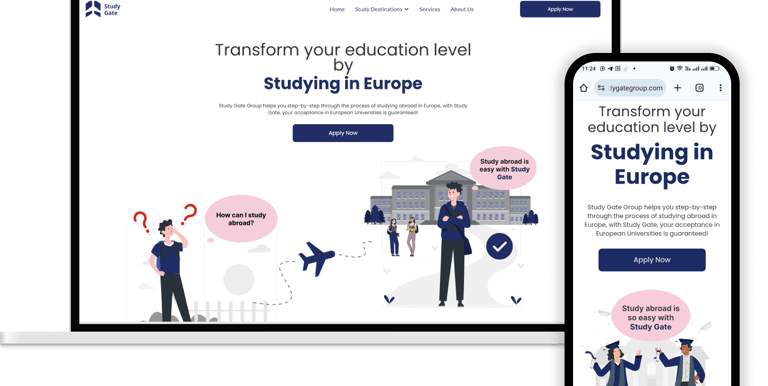SAIDIE Stores Application
A new way for shopping clothes
Role: UX/UI Designer & Product Manager
Tools Used: Figma, Miro
Duration: 3 months
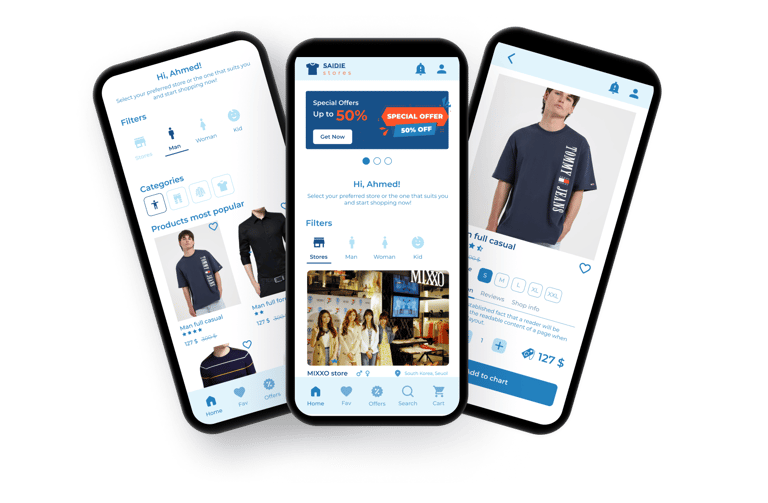

Introduction
Problem Statement
Traditional shopping is often time-consuming and inefficient. Users may spend hours visiting multiple stores, searching for items they like, and dealing with stock unavailability. While online shopping offers convenience, it lacks the ability to assess clothing items in real life before making a purchase. This gap creates frustration and uncertainty for shoppers who prefer trying clothes before committing to a purchase.
Solution: SAIDIE Stores
SAIDIE Stores is an AI-powered shopping app that aggregates local clothing stores that are partners with SAIDIE Stores. It enhances the shopping experience by allowing users to:
Explore various stores and their available items in real time.
View clothes with high-quality, realistic visuals.
Reserve specific items with a customized ID to try them in-store before purchasing.
Purchase items online if they are confident in their selection.
Minimize time wasted visiting stores that don’t have the desired items.
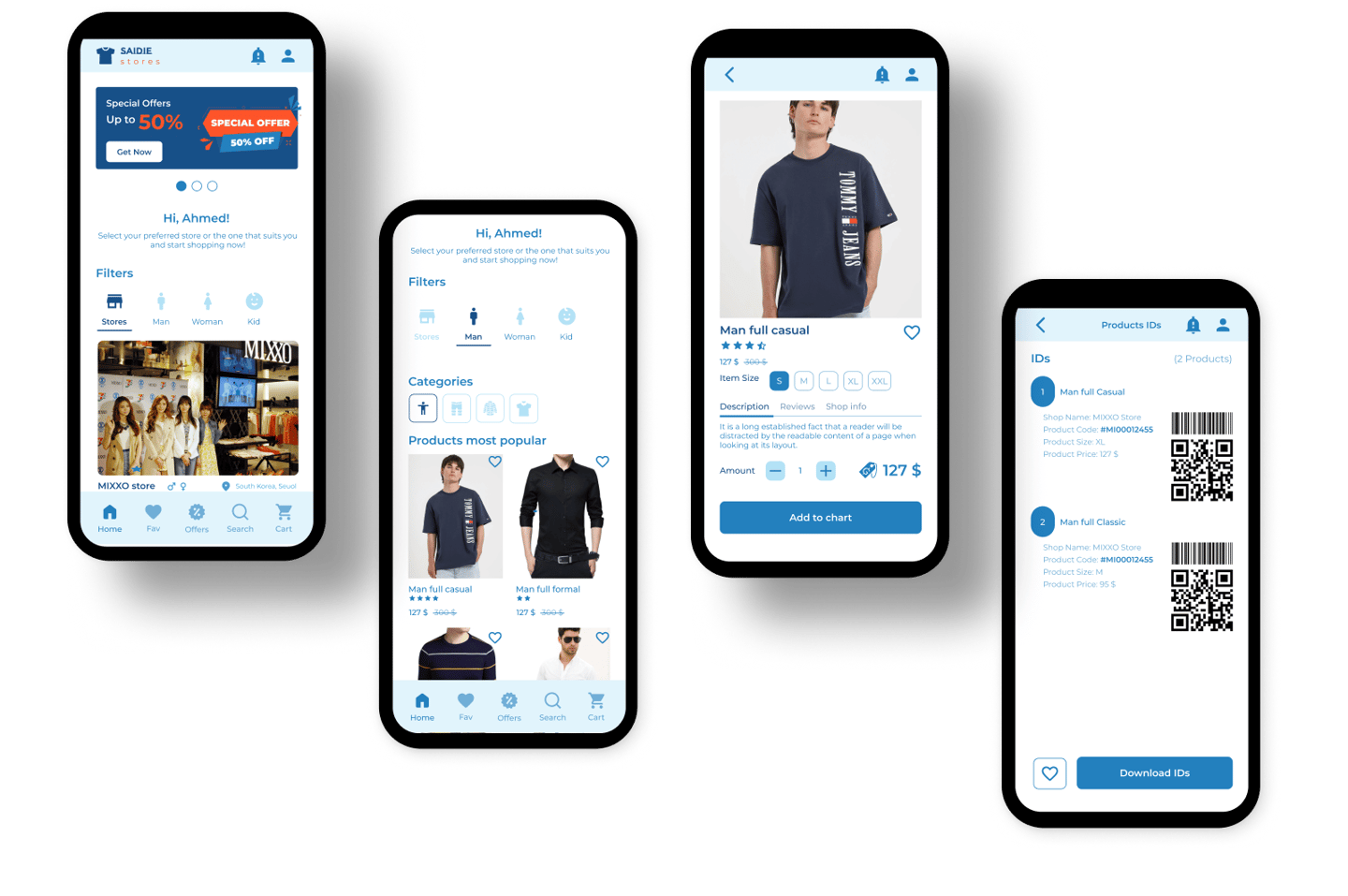

UX Research
Target Audience
To design an effective experience, I started defining the potential users of the app and their pain points.


Busy Professionals (25-40 years old):
Limited time for shopping, want to minimize effort.


Fashion Enthusiasts (18-30 years old):
Trend-conscious individuals who want to explore new styles.


Selective Shoppers (20-45 years old):
Prefer trying clothes before purchasing but dislike aimless store visits.
UX Research
User Pain Points:
Time Consumption: Shopping requires multiple store visits.
Uncertainty: Unsure if a clothing item will suit them.
Stock Availability: Visiting a store only to find the item is unavailable.
Competitive Analysis
I analyzed other shopping platforms like Zara App, ASOS, and Farfetch to identify gaps and these were the main insights that I got:
Strengths: Convenient online purchases, variety, and visual browsing.
Weaknesses: Lack of item reservation, no try-before-you-buy option.
Opportunity: A hybrid model that combines online browsing with in-store trials.
Ideation and core features set
Core Features that we identified as must:
Realistic Visual Previews:
High-quality images and AI-driven recommendations.
Reservation System:
Users can select items and reserve them before visiting.
Customized Reservation ID:
Generates a unique ID for users to present in stores.
AI-Powered Suggestions:
Recommends items based on style preferences.
Store Locator:
Users can filter stores based on their interests and item availability.
The Application Roadmap (Main user flow):
Login / SignUp
Explore available Stores and select what you need based on the location, stars rate, and the category.
Train the AI of the selected Store with your preferences.
Select the needed products.
Get the IDs for in-person store visit or checkout for online payment.
Sketching
I started sketching lots of ideas for each app screen and share with my mentors for some key problems and challenges I faced in some of the complex pages.
We decided not to do wireframing or low-fidelity designs as we are testing the product with variety of audiences, the low-fidelity version will not be effective and usable to use and get valuable insights
UI Design Process
1. Building the Design System
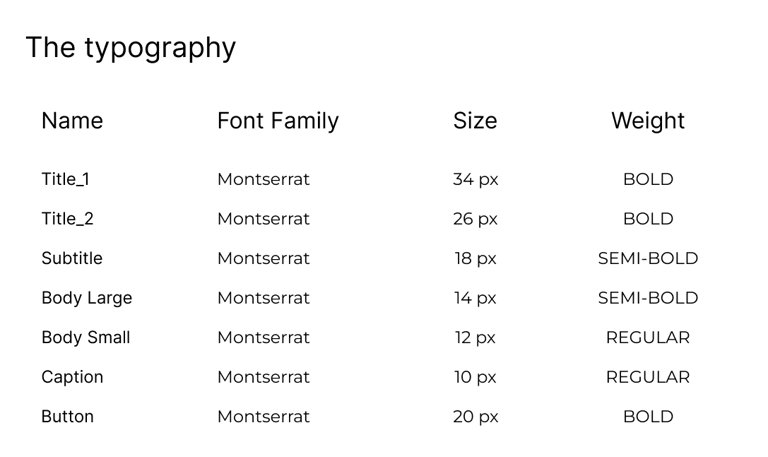

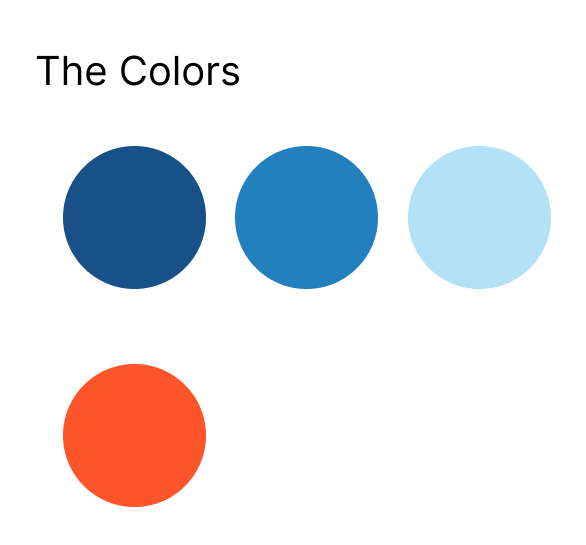

UI Design Process
2. High-fidelity mockups & Prototype


UI Design Process
The Application Main User Flow
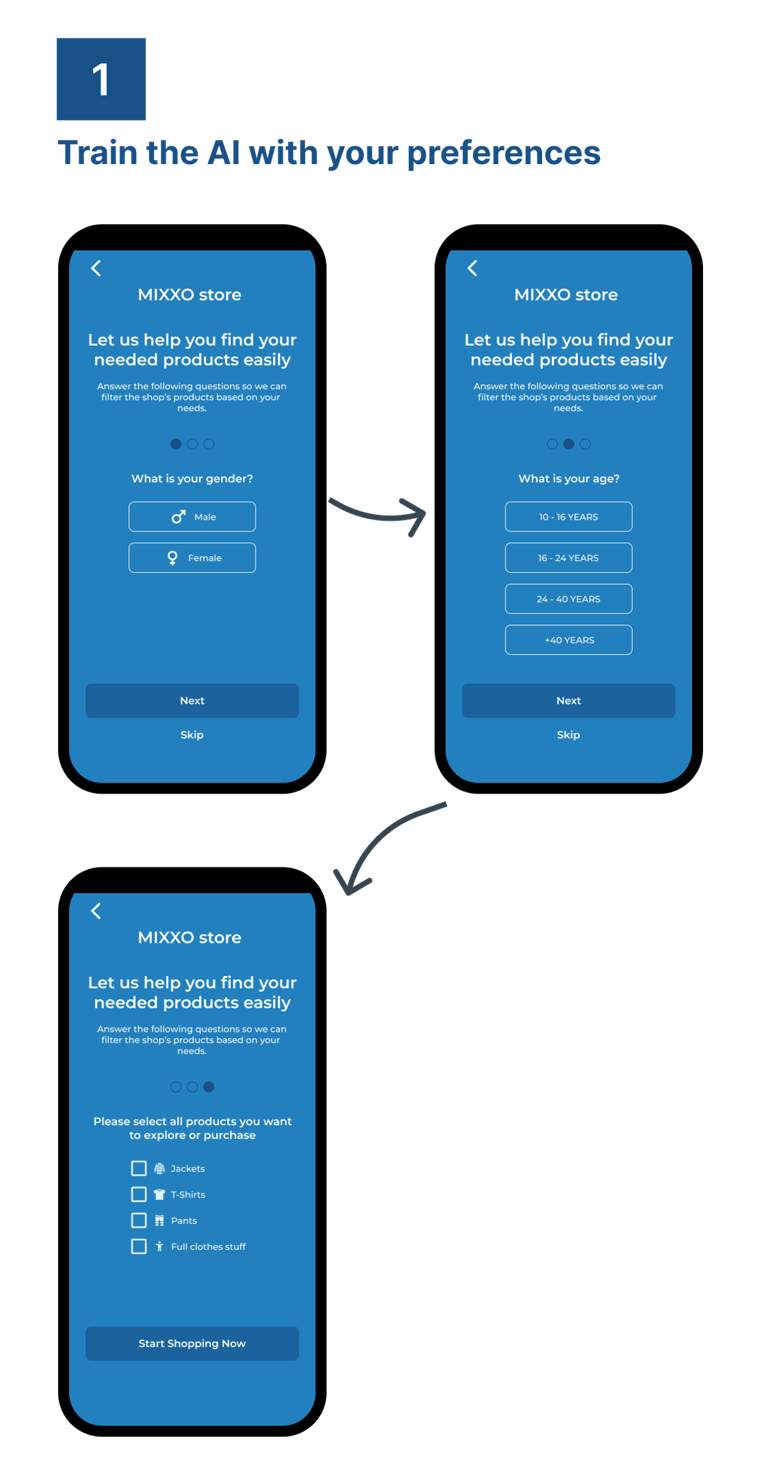

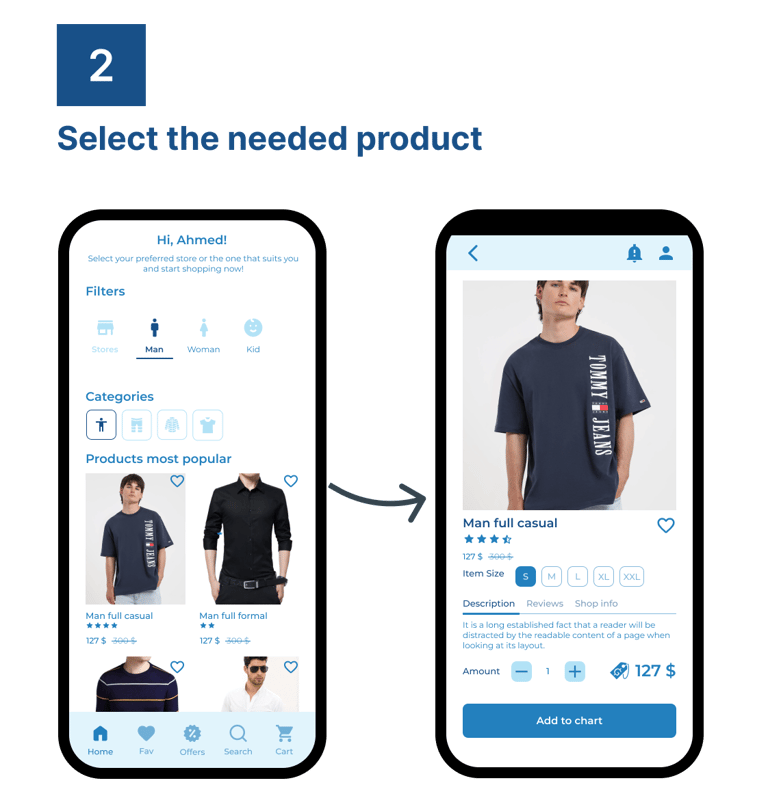

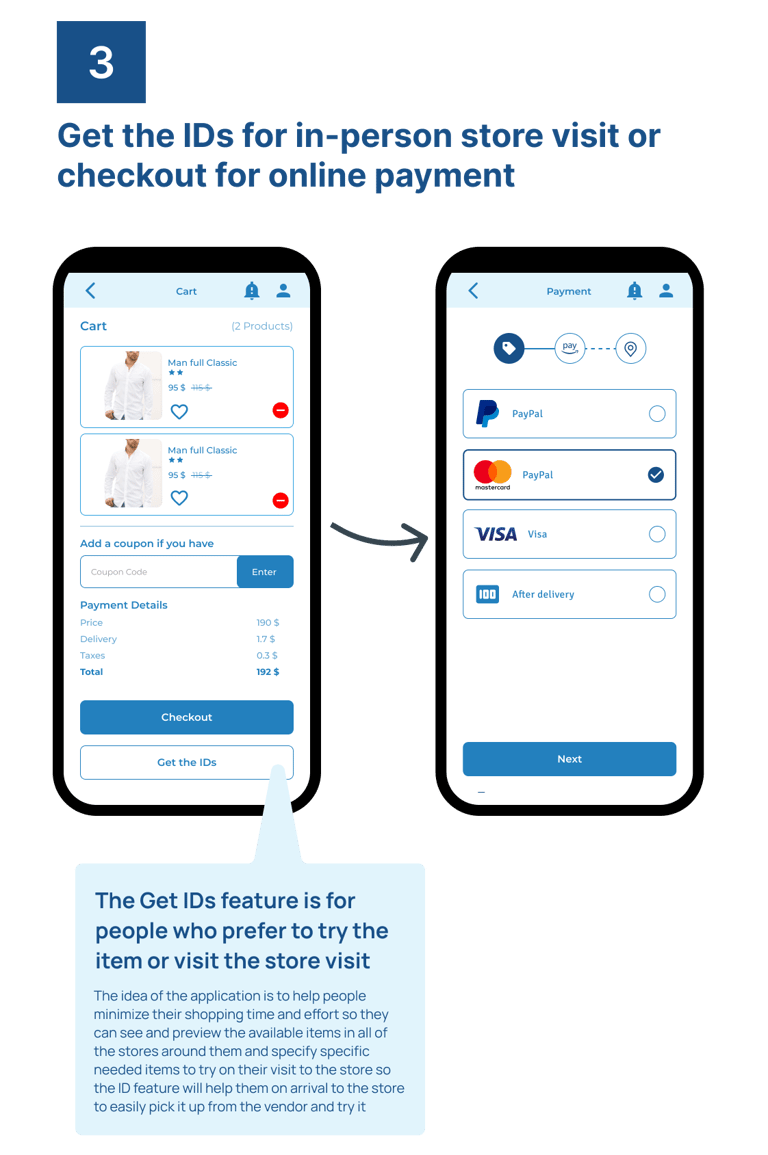

Usability Testing & Iterations
Usability Testing process
I conducted usability testing with 9 participants from our target audience, 3 from each user group as I mentioned above about the users of the application. I mainly tested:
Navigation clarity.
Ease of reservation.
Overall experience.
The following are the design iterations based on the feedback:
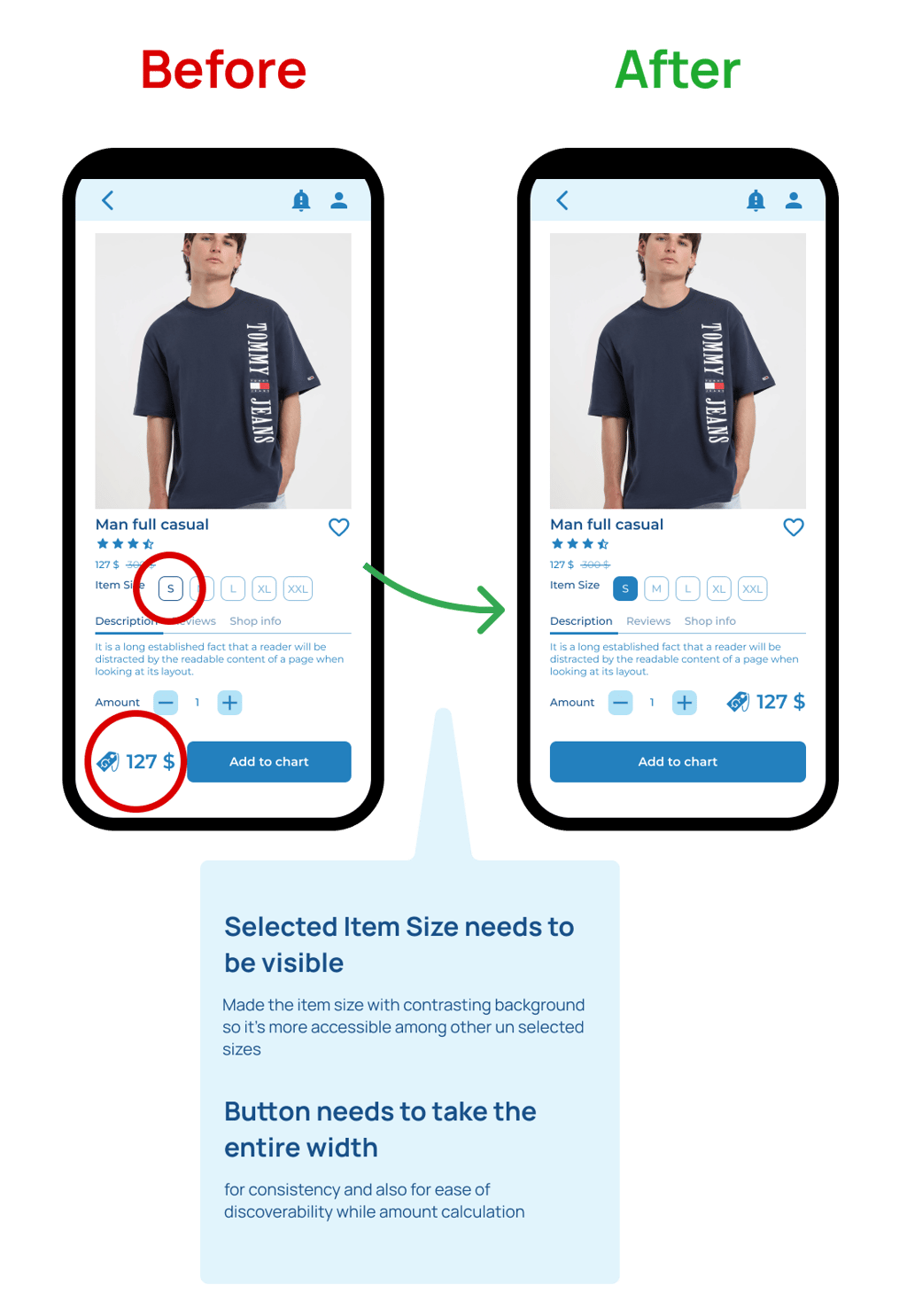

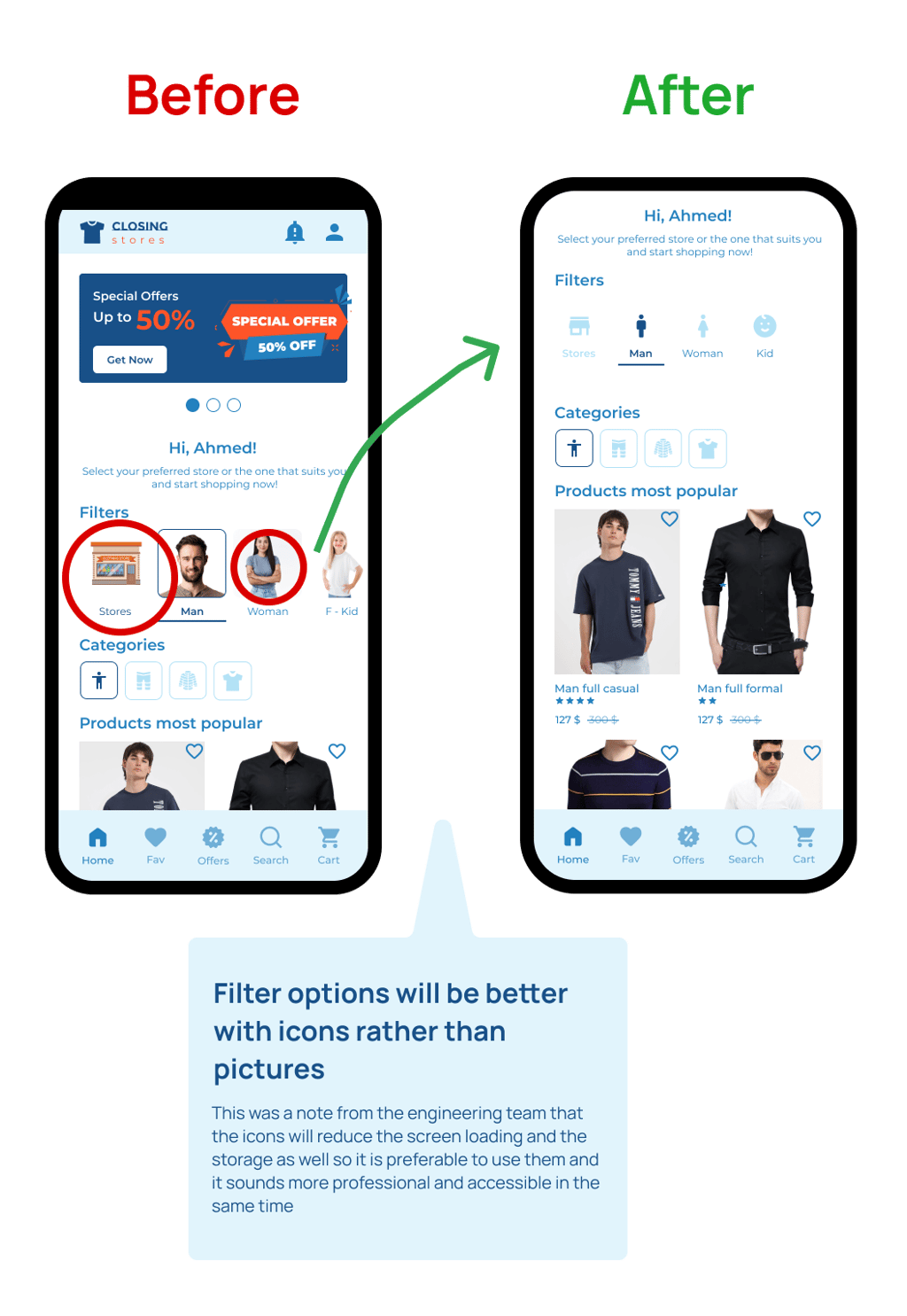

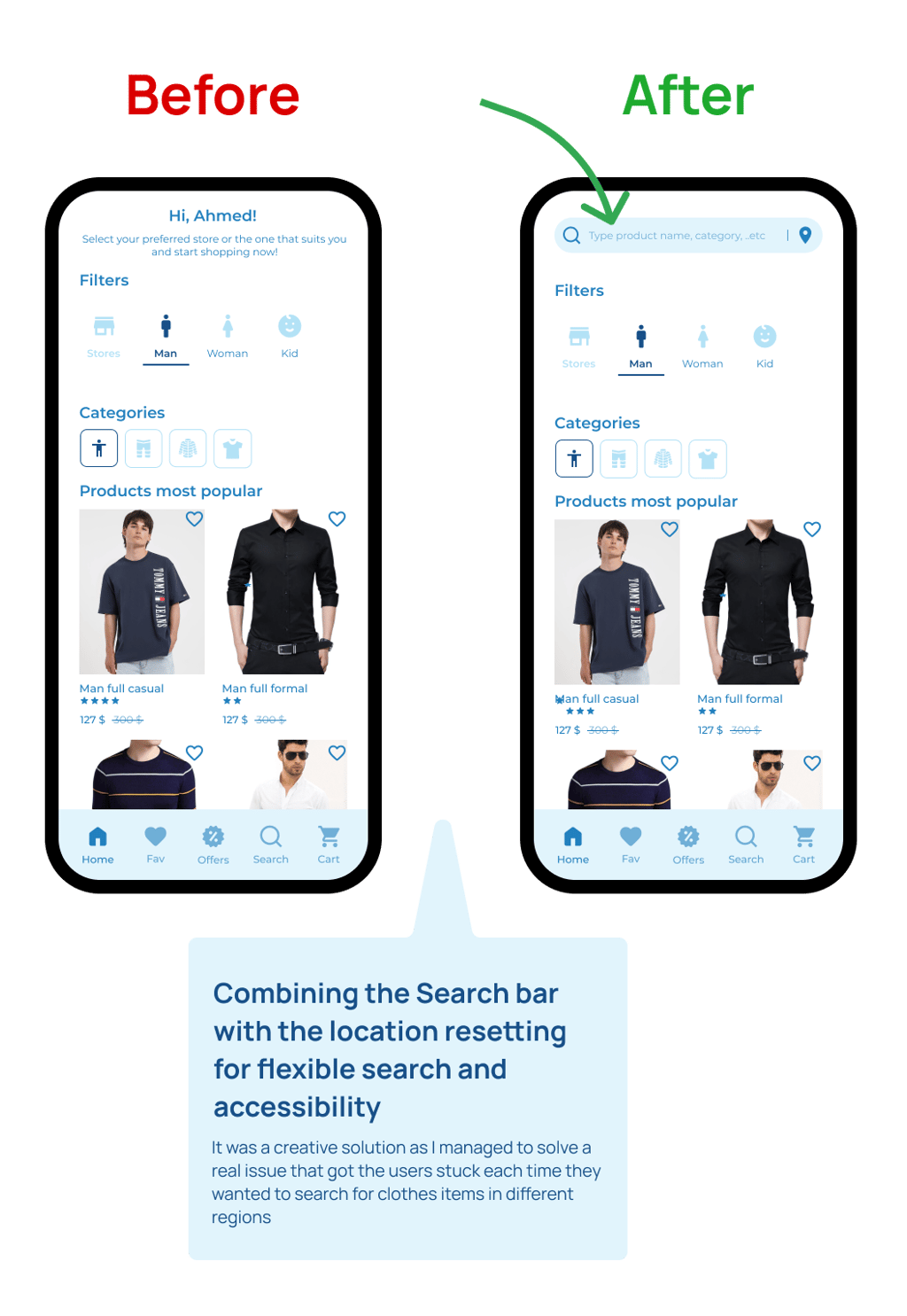

Final Design & Outcome
Key Improvements Achieved
Reduced time wasted in shopping by 60%.
Enhanced user satisfaction with realistic item previews.
Increased store visits due to the reservation system.
Before vs. After
Before: Users had to visit multiple stores physically without knowing if they had suitable items.
After: Users can browse, reserve, and visit only relevant stores, reducing wasted trips.
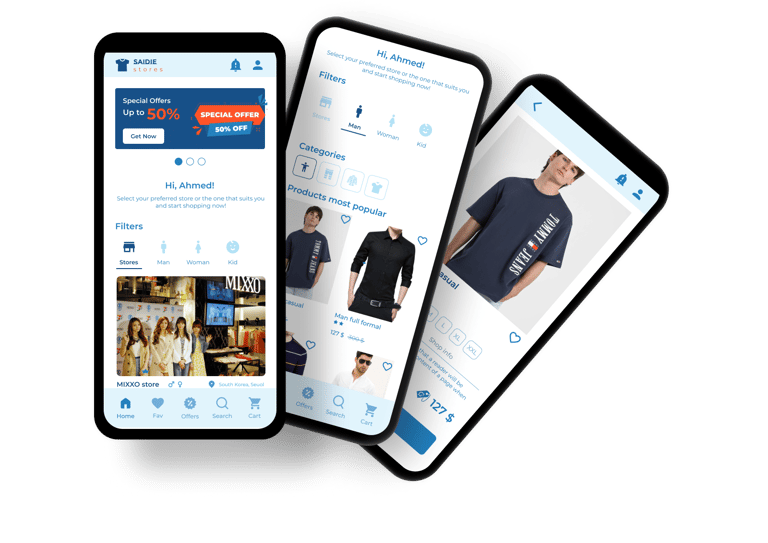

Future Enhancements
Augmented Reality (AR) Try-On: Virtual fitting rooms to preview outfits before visiting stores.
AI Style Recommendations: Enhanced machine learning models for personalized outfit suggestions.
In-App Loyalty Program: Discounts and rewards for frequent users.
Expanding Store Partnerships: More local and international brands integration.
Conclusion
SAIDIE Stores is a game-changing hybrid shopping experience that optimizes time, enhances convenience, and blends digital shopping with real-world try-before-you-buy flexibility. The app successfully bridges the gap between physical and online shopping, ensuring users have a smarter, more efficient shopping journey.
Reach out to me!
Expect to hear from me 2 days after submitting the contact form or sending me an email. Excited to work with you :)
mahmoudessamsalm@gmail.com
Mahmoud Essam
Crafting exceptional user experiences that balance between users' and business needs.
CONTACT
mahmoudessamsalm@gmail.com
© 2025. All rights reserved.

